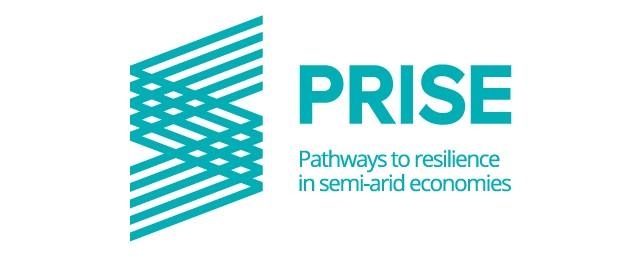
- African Institute of Innovation
- Environment and development (Senegal)
- Institute for International Development (ODI)
- London School of Economics and Political Science (LSE)
- State Agency for Hydrometeorology (Tajikistan)
- Committee for Environmental Protection under the Government of the Republic of Tajikistan
- Ministry of Energy and Water Resources of the Republic of Tajikistan
Migration, remittances, adaptation and resilience in arid and semi-arid regions of Senegal and Tajikistan project is one of the research packages of the “Pathways to Resilience in Semi-Arid Economies” or PRISE. PRISE is a five-year, multi-country research project that generate new knowledge about how economic development in semi arid regions can be made more equitable and resilient to climate change.
This research aimed to study the links between remittances of migrants and resilience in arid and semi-arid lands (ASAL). It offered a comparative analysis between Senegal and Tajikistan, two countries where migrant remittances are a major source of revenue. The expected result of the research project was to provide the evidence base to improve social and economic policies to support migration and remittances as an adaptation measure and secure long-term climate-resilient development of semi-arid economies of Senegal and Tajikistan.
The main activities of the project:
-
Step 1. Desk review: During this stage, the team collected and reviewed statistic and documentary data and information available (e.g. statistic agencies, African Development Bank, World Bank, Asian Development Bank, IOM, interdepartmental data of the ministry of economy, finance and labour, banks, microfinance institutions, etc.).
-
Step 2. Household surveys: Based on the methodology, being finalized in the Step 1, the project team conducted household surveys in the selected research sites. The questionnaires targeted and not limit the following categories (i) general information about the respondents, (ii) overall income and share of remittances, (iii) distribution of remittances, (iv) climate change, risks and responses, (v) needs for long-term investments and prioritization, (vi) gender specific data, etc.
-
Step 3. Comparative analysis: Comparative analysis, based on a qualitative method, intended to track changes and commonalities between two SAL countries Senegal and Tajikistan in terms of migration patterns, flows of remittances, distribution, gender specificity, etc.
-
Step 4. Scenario projection: This step envisaged a quantitative support and modeling exercise. Both project teams had had a resource person, who contributed to the research by projecting the future economies in SALs on migration, remittances and linkages to a climate-resilient future to see (a) what will be the situation with a business as usual scenario (no policies are in place, the situation continues as it is), and (b) what will be the situation if improvements in policies (social safety nets, banking systems, etc.) are undertaken.
-
Working paper: Migration, remittances and climate resilience in Senegal and Tajikistan
-
Methodology: Research methodology, including the identification of the pilot sites, sampling number, and tools for household surveys.
-
Working paper: Key findings of the research in Senegal and Tajikistan
-
Case studies: Gender-specific role in migration, remittances and climate resilience
-
Working paper: Commonalities and differences between Senegal and Tajikistan in shaping remittances towards climate resilience
-
Policy Brief: Informing policy makers about the next steps towards climate resilient future and how migration and remittances can help shaping the efficient policies
-
Recommendations and a road map to improve the policies
Project manager – Ms. Nailya Mustaeva
